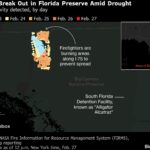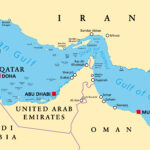Fostering Close Working Relationships Is a Priority for The NIA Group
Top 100 Agency Profile
Ranking No.: 19
Agency Name: The NIA Group LLC
Headquarters: Paramus, N.J.
Year Founded: 1926
Additional Locations: 11
2008 Total Premium Volume: $953.72 million
Property/Casualty: $378.97 million
Other than P/C: $574.75 million
% Commercial: 32% of total premium volume
% Personal: 8% of total premium volume
2008 Revenues: $68.39 million
Principals: Several. Paul Gross, CEO, and family own more than 75% of the voting stock.
Mergers/Acquisitions: 80 over the years
Number of employees: 407
It all started with one independent contractor, Bernat Nelson, who bought an insurance license for the cost of a dollar back in 1926. At the time, that independent contractor had no way of knowing that he was building more than he bargained for. He was creating a foundation upon which several future generations built a solid business that has become one of the top 100 agencies in the United States today. The philosophy “none of us is as smart as all of us” sums up what the NIA team believes in and a standard by which they work together.
Despite its size, the NIA Group doesn’t allow much distance between staff members. Through the use of the Internet, and the consciousness of the leadership to be sure that people are able to meet and help one another, workers there say NIA is their last stop before retirement.
NIA’s Family History
In the generations when Bernat Nelson and his son Robert bought their own insurance licenses for a dollar, this practice was common among building developers. There were no hours of instruction to complete, or exams to pass in those days. Obtaining an insurance license also allowed for a builder to get up to 30 percent to 35 percent commission on the property he developed.
In 1945, Bernat’s son Robert took over the agency. For 31 years, their principal business was construction and real estate. When Paul Gross, Bernat Nelson’s grandson, graduated from the Wharton School in 1957, he took over the agency. At that time, they had $23,000 in premium. Paul had majored in economics, and minored in insurance. He decided to invest his time, and the money his father would have spent for graduate school, in the agency. “I did cold calling … phone and in-person, knocking on doors, for at least five years,” Gross recalls of his early days. “So I’ve had my head beaten in, and phones slammed down, and doors slammed in my face so many times that nothing bothers me at this point in my career.” Paul says “cold calling” in those days, meant going to a shopping center from store to store. “At night, I’d go door-to-door, trying to make appointments for homeowner’s policies. People were not home during the day, so you had to do personal lines at night; you did the commercial insurance during the day.” Paul’s persistence, however, would gradually pay off.
Paul’s son Roger Gross, considered to be the next in line to take his place as CEO, is now the chief operating officer. Roger joined his father in 1994. He says his father has been an inspiration to him with his work ethic. He recalls his childhood jobs at the office. “As a kid I used to push file cabinets around in the office, and used to come in on weekends with him.” As a teenager and young adult, he worked in claims, personal lines and the accounting department. Like so many who work on the NIA team, Roger plans to stay until he retires.
Changes
Through the past 52 years with Paul Gross and his team at the helm, the agency has undergone changes that have caused it to evolve into the success it is today. In the mid-’60s, Paul changed the name of the agency to The NIA Group. NIA stood for Nelson Insurance Agency. He shortened the name to fit what he saw as a trend in business at the time. “It was in the days when I thought companies like IBM were the geniuses of the world. In the ’50s and ’60s, initials became the vogue.”
The biggest change for NIA happened in 1994, when Paul made the decision to buy controlling interest in Kornreich Insurance in New York City. This was when Paul asked Roger to come to work for him. A business broker contacted Paul about the opportunity. At first, he resisted. “Personally, it’s (New York City) not one of my favorite places to go,” Paul says. “Even though I live 16 miles from the George Washington Bridge, I’d rather find me an agency in New Jersey.” But he went anyway, and the rest is history.
Since then, NIA has taken to investing in other agencies. “Over 70 percent of our growth over the years has been through acquisitions of other agencies,” Paul says. “We’ve purchased about 80 insurance agencies since I’ve been in business. Most of them are mom-and-pop stores, in other words, very small agencies.”
Steve Grossberg, who has been with Kornreich since 1982, became president of NIA in March 2000. Grossberg points out one factor that makes NIA unique: “I think what sometimes makes us unique is the fact that we support our producers with a technical team, and the technical team may be, not one team but various technical people that can support the types of business that they bring into the organization,” Grossberg explains. “We try to match up the technical staff with the type of account that the producers bring in. They will actually assist the producers in hopefully closing the account.”
The producer may work with the client once a year, while other members of the team get in touch with them around five times a year. “We firmly believe in the fact that, the more business that we do with a client, the more lines of business we write with a client, the better our retentions are,” Grossberg says.
The NIA Group Today
The NIA Group is now one of the largest privately held insurance and financial services organizations in the country. They are headquartered in Paramus, N.J., and also operate out of Connecticut, New York and Florida. Between all four states, they run 12 different locations.
Each office has a different focus. In New York, the focus is real estate; in Florida, the focus is on condominiums; and in New Jersey, their focus is malpractice for doctors and lawyers of every type. They even have an equine division.
NIA’s equine program started in the late 1970s. Today, it is a dedicated department in the agency, with people who have been in the insurance business for more than 30 years. NIA writes three different types of horses: thoroughbred, show-horses and standard-breeds.
Another unique line that NIA spent a good deal of investment dollars to develop is their 401(k) division. “We think there’s a real opportunity to provide quality service to clients on a direct basis and handle as much as we possibly can with our clients,” Grossberg says. “The 401(k) division we’re really proud of because it’s an expertise that a lot of brokerage firms don’t have.”
Paul says NIA has around a dozen specialties. Right now, they have approximately 10,000 commercial property and casualty accounts; more than 10,000 life and group accounts; and about 30,000 personal line accounts. “Years ago, I decided that NIA would not be a table with one leg under it like a pedestal,” he says. “We would put multiple legs under it, so if there was a problem in any field, whether it’s automobile insurance, whether it’s fire insurance, or in the case of Florida windstorm insurance, we always have other legs holding the table up.
“I diversified our agency into geography. I diversified it in product line; and I diversified it in customer base. If we lost any one insured, it wouldn’t affect us at all.” Paul says he can’t think of a field that NIA isn’t working in. They are now licensed in every state.
Like every other business, NIA has its crosses to bear. “It’s harder today because of this economic crisis we’re in,” Paul says. “The bottom line is you have to work harder, the profit margin will not be what it was; it will be less than it was in prior years. … But it’s true in any business. You have your ups and downs.” With his business savvy, Paul is making sure the downs are working for NIA. “We’ll continue to do acquisitions. There are more agencies for sale now because of the economic crisis. So it’s very good for competition.”
Education
Education is an important part of The NIA Group. Paul says they not only give instruction in the area of insurance, but in areas like time management, and how to work with their computer system. Most associates need between 12-15 credit hours per year (depending on the individual state), to keep up their license. Debbie Omansky, the chief compliance officer and vice president of quality assurance, established The NIA University in 1999 to assist with these requirements. She is the director, as well as an instructor. They have directors and licensed instructors in all four states where The NIA Group is headquartered.
NIA offers online education courses to their employees, and uses an extensive video conferencing system for employees in other office locations. The system has a camera and a television screen in the back of the classroom which Omansky describes as looking like a Play Station. As an instructor, Omansky can see on the screen all of the offices in attendance. Each office has the same device, and they can see her as well. Omansky says this device also has the capacity to record classes. This enables agents to go and access the material on their computer through the Web site. “It (the video conferencing system) is very unique to us, because we use a lot of outside instructors,” Omansky explains. “And, almost without fail, every instructor who comes here has never worked with the system before.”
What One Client Has to Say
Max Crane, an attorney who has been a client of the NIA Group for around 15 years, says there are two differences between working with this agency, versus others he’s worked with. “They actually pay attention. Sometimes agencies will write a piece of business, then they may or may not see you again until you change the piece of business. And, if there’s a problem or a need for specialized attention sometimes, I get attention from the very top. Not as if it’s shunted off to a new person who may not know us (and) may not know our needs.
“So it’s really, I think, the attention to detail, and the responsiveness from the top for special situations.”
Team Work
The NIA Group is not a strong team by accident. Each member shares Paul’s vision, and has a strong work ethic. “It’s very difficult for an outsider to come into an organization like ours,” Paul says. “I don’t want to say that we’re set in our ways, but we’re driven by a passion to create a business that is very family-oriented.” Perhaps it is difficult for an outsider to come into their organization, but not impossible. In fact, it appears many who come to The NIA Group aren’t inclined to leave any time soon. Paul says of the 407 employees he has, more than 40 percent have worked with NIA for 10 years or more; 20 percent have worked there over 20 years; and 25 percent have been there over 30 years. “We’ve got a lot of people who have been with us a long, long time. That’s very, very important to us.”
Peter Hutton worked as senior vice president for 10 years. He left to seek out another opportunity, but returned recently. “At the time, NIA was considering selling to a bigger entity, so that sort of pushed me to look at other opportunities.” If there was any opportunity lacking four years ago, that certainly is not the case today. “Me coming back as executive vice president gives me the ability to oversee all the strategic development of programs. Managing NIA’s company-wide sales teams, as well as being in charge of all the recruitment and training initiatives, is really something I wanted to be involved with.” Hutton also plans to stay until retirement.
There appears to be no limit to the opportunities and exchange of expertise within the agency. There is literally no type of insurance that NIA doesn’t sell, which is very unique. This is perhaps due to the team attitude, also unique to a large agency. “Typically, a smaller agency, they’re really more general, or they’re doing one product line that they’re experts in. And if it’s out of that expertise, then there’s really no help,” says Hutton. “Whereas here, I have the ability to pull from talent from 12 different locations among many states, and there’s someone that has expertise in anything we would go after. So it does give an interesting breadth of what we can offer.”
What Roger enjoys most about NIA is putting people together and having them both benefit from knowing each other. “What happens is people, for some reason or other, naturally protect what they know, as opposed to sharing what they know. So to create an environment where people want to share what they know with the balance of the organization, everyone wins.
“Bill Cilente, who is the product coordinator for our Commercial Lines Division, has a saying that accurately reflects the collective knowledge we try to share within the organization: ‘None of us is as smart as all of us.'” That saying appears to be true for The NIA Group as they continue to prosper in today’s economy.
Was this article valuable?
Here are more articles you may enjoy.


 Deep Freeze and Drought Fueled a Massive Florida Wildfire
Deep Freeze and Drought Fueled a Massive Florida Wildfire  Zurich Insurance Said to Near Beazley Deal Funded by Equity Sale
Zurich Insurance Said to Near Beazley Deal Funded by Equity Sale  Marine Insurers Cancel War Risk Cover as Iran Conflict Escalates
Marine Insurers Cancel War Risk Cover as Iran Conflict Escalates  Florida Appeals Court Pulls the Plug on Physician Dispensing in Workers’ Comp
Florida Appeals Court Pulls the Plug on Physician Dispensing in Workers’ Comp 


